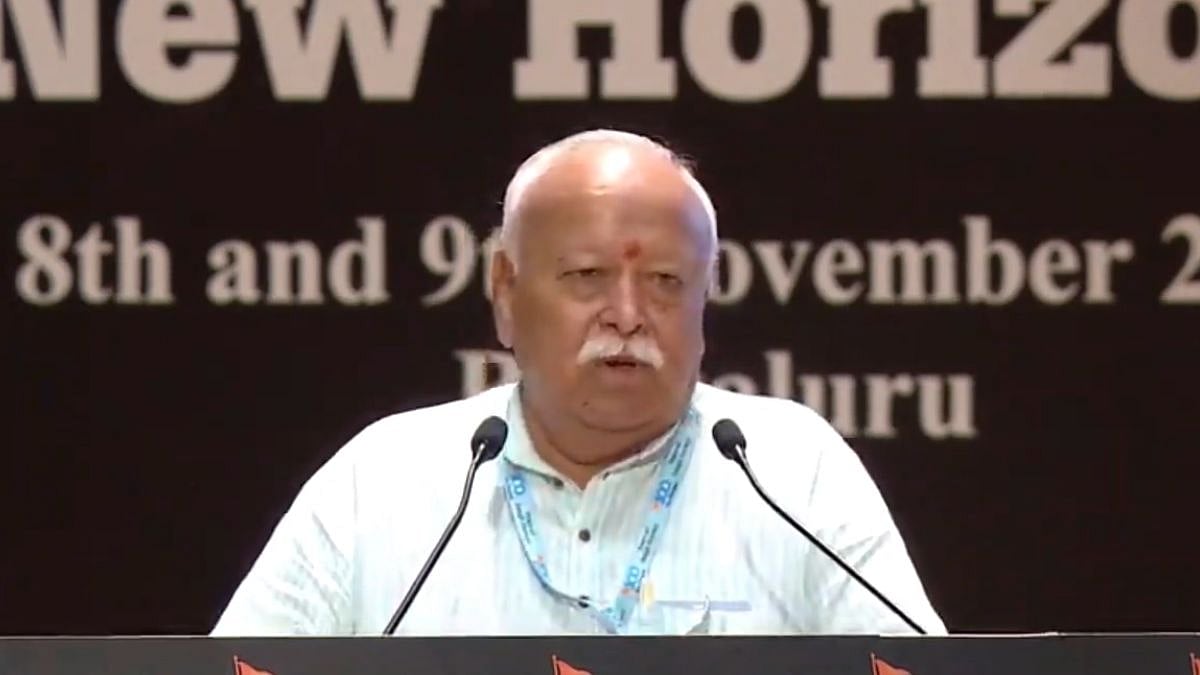The slight air of sleaze emanating from the stills and promos of the web series Rasbhari, not to mention the title itself, and then the reactions to it on social media led to watching the Swara Bhasker starrer. To call it disappointing would be an understatement; it takes up a subject supposedly critical of small-town hypocrisy and inherent misogyny but remains at the level of the Savita Bhabhi kind of juvenile soft porn. A waste of an opportunity for satire and maybe soul-searching about everyday sexism.
Some thoughts that came to mind — in our films and serials, most of the time, teachers are turned into figures of ridicule, unless they are played by stars, who get to be saviours of spoilt brats. Female teachers are invariably lust objects for hormonal teens. Sexualising female-dominated (so far) professionals like teachers, nurses, secretaries and treating ‘boys will be boys’ kind of male voyeurism or harassment as a joke, just leads to what is now recognised as toxic masculinity.
In our society, women are expected to be attractive to men, but not express their own desire, lest they be labelled as sluts. This is what Rasbhari (directed by Nikhil Nagesh Bhat, created by Tanveer Bookwala - Shantanu Srivastava) tries to say in a roundabout and quite ineffectual way.
The teenage protagonist of this Meerut-based story is Nand (Ayushmaan Saxena), the cool dude of his school, maybe rakhi bro-zoned by girls in his class, but has vowed to get laid by the time he finishes 12th standard.
Nand is the pampered only son of a lingerie shop owner and a shrewish woman, who has been appointed unofficial leader of the town’s card-playing, gossiping housewives. The biggest concern of these women is to keep their husbands from straying — though it’s not clear what their temptations could be, except jerking off to Manohar Kahaniyan.
As the series opens, a red pallu flutters down the railway station and the men around there behave as if they have never seen a woman before, following her like Pied Piper’s rats.
The sensational arrival to Meerut is Shanu Bansal, the school’s newly-appointed English teacher, who is accompanied by her husband Naveen (Pradhuman Singh Mall), a travelling mobile salesman. Which teacher with half a brain would wear sleeveless and backless blouses to work? But that is Shanu’s default costume.
Starting with the cable installation guy, who comes out of Shanu’s home loudly boasting of his sexual antics, it appears as if the men of Meerut are bewitched and bedded by the teacher, which, of course, sends the wives into a tizzy.
All of this is quite exaggerated and implausible — it’s not as if Meerut is so tiny and so backward that there is only one sexy woman in town. Again, it is not clear whether Shanu really seduces every man who steps over her threshold, or it is their own fantasy, fuelled by the lurid pulp magazines peddled at railway station book stalls.
The series then introduces the idea of a ‘split personality’— Shanu suddenly transforms into a Lucknow courtesan called Rasbhari — which means, oddly enough, she has ‘sexy’ clothes and make-up stashed in her cupboard and gets into seductive mode in a jiffy! (Ask any woman how long it takes to apply that much make-up!)
Her husband narrates this strange phenomenon to Nand, and also that they were forced to leave their last place of residence, because of the Rasbhari scandal. It seems history is about to repeat itself.
So does a bored Shanu playact? Is Rasbhari a manifestation of her suppressed desire? The series does not have the nerve or the imagination to be truly subversive.
When it goes into Shanu’s past, there are scenes that are simplistic, but reflect the reality of small-town girls, who are treated as inferior to their brothers. Her mother encourages her to do a bawdy dance in front of guests, saying that she might as well learn early how to entice (rijhana) a man.
When Naveen and his family come to see her as a prospective bride for him, it is revealed that she is more educated than him, but her mother is quick to clarify that she has been taught housework too. Shanu is obviously overqualified for a school-teacher’s job, but probably nobody asked her what she wanted to do, and she simply submitted to whatever her parents, husband, and society expected of her. She does not have the means or the courage to rebel, so she creates a Rasbhari to speak for her — a courtesan who has power over men, the words to express her feelings freely, and the audacity to be sexually demanding.
She makes men drool with lust, and the women insecure; the wives cannot blame their husbands for chasing after other women, but they can collectively attack the “whore”. Shanu could have been a heroic woman, who shames the town into understanding its own failings and prejudices; instead, she flees in terror of the advancing women’s army.
From mythology to classic literature, women who have expressed desire or broken patriarchal rules have been banished, killed, mutilated, burnt at the stake as witches, driven to suicide or punished in some other way. Shanu/Rasbhari does not face any monumental tragedy, but she does not change the narrative either. She may slap a man who makes a vulgar comment, or teach Nand about respecting women, but is just too meek to be a heroine needed for these post #MeToo times. It’s a pity she is played by an actress who, in real life, has been taking on Twitter trolls and right-wing goons with wit and vitriol. Why doesn’t Rasbhari have even a fraction of that moxie?
The writer is a Mumbai based columnist, critic and author.









